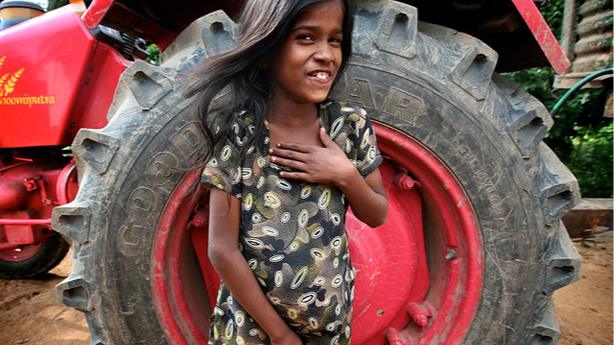


A joint initiative between the University of Bergen
and CMI – Chr. Michelsen Institute
Corporate Human Rights Abuses: State or Business Responsibility?
Extractive Industries and Land Rights Issues: The Cases of Nigeria & India. With Nnimmo Bassey (Health of Mother Earth Foundation/Rafto Prize Laureate), Salil Tripathi (Institute for Human Rights & Business), and Namita Wahi (Centre for Policy Research/LawTransform).

Violations of human rights have become a grave side effect to the activity of some transnational and domestic corporations, particularly in poor communities in the Global South. Many corporations are critici
zed because they or their subsidiaries or partners use child labour, condone slavery, profit from illegitimate expropriation of land, and operate in ways that harm human health and the environment.
Governments bear the primary obligation to protect and respect human rights, yet they often fail in this objective due to lack of will or capacity. In several cases they do not enforce regulation and fail to secure compensation for victims of corporate misconduct. What can be done to hold corporations responsible for their adverse human rights impacts?
In 2011 the UN Human Rights Council unanimously adopted the Guiding Principles on Business and Human Rights, which created a three pillar framework – the state duty to protect human rights, the corporate responsibility to respect human rights, and the need for a remedy, where gaps exist. The UN GPs were not meant to create a regulatory mechanism, and the absence of an international enforcement mechanism remains a major challenge to improve realities on the ground. In 2014, the UN Human Rights Council established a working group to prepare the ground for a legally binding treaty on business and human rights. Thus far there is no political consensus internationally for a binding treaty, and the difficulty of making corporations accountable for their human rights abuses remains.
This seminar takes a closer look at corporate human rights abuses in Nigeria and India in relation to extractive industries and land rights issues. The panel will explore:
• What human rights abuses are the most common in extractive industries? Who are the victims?
• What is the link between environmental pollution and human rights? To what extent are corporate human rights violations a matter of corruption?
• What structural challenges hinder governments in holding corporations accountable? How applicable is criminal law for controlling such problems?
• What impact have the UN Guiding Principles had on corporations operating in India and Nigeria?
Panel:
Nnimmo Bassey (Director, Health of Mother Earth Foundation/Rafto Prize Laureate),
Salil Tripathi (Senior Adviser, Institute for Human Rights and Business),
Namita Wahi (Fellow, Centre for Policy Research/ LawTransform).
Moderator:
Tina Søreide (Professor of Law and Economics, NHH/Leader of Corruption & Criminal Law unit, LawTransform).
This event is a collaboration between the Rafto Foundation and the Corruption & Criminal Law Research Unit at the Centre on Law and Social Transformation.
Free and open to all!
Refreshments will be served 🙂
See event with panel bios. on our webpage
https://www.lawtransform.no/event/
corporate-human-rights-abus
es-state-or-business-responsibility/
Picture title: Untouchable Indian girl in font of tractor. Photo: Sean Hawkey

